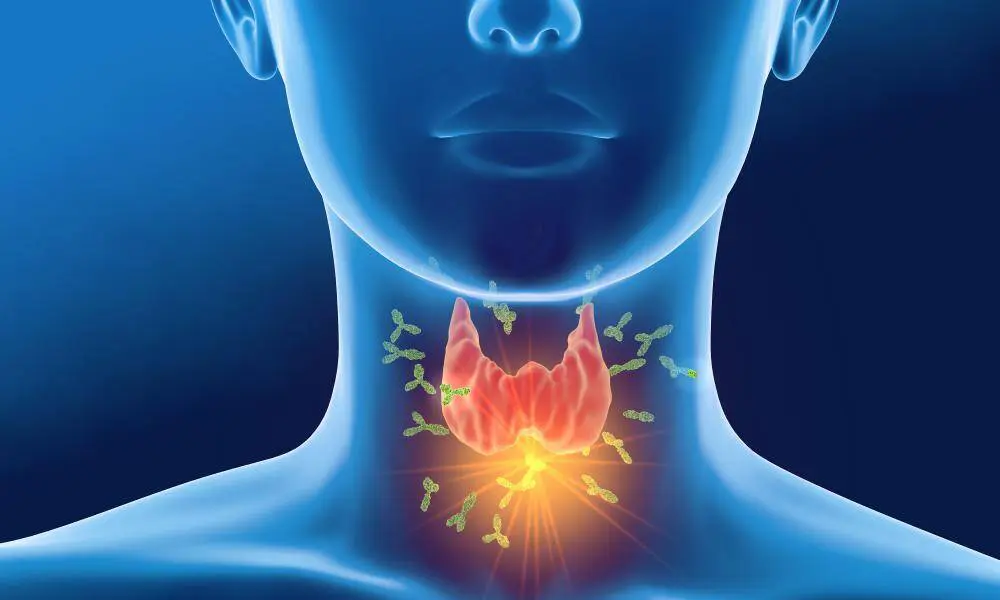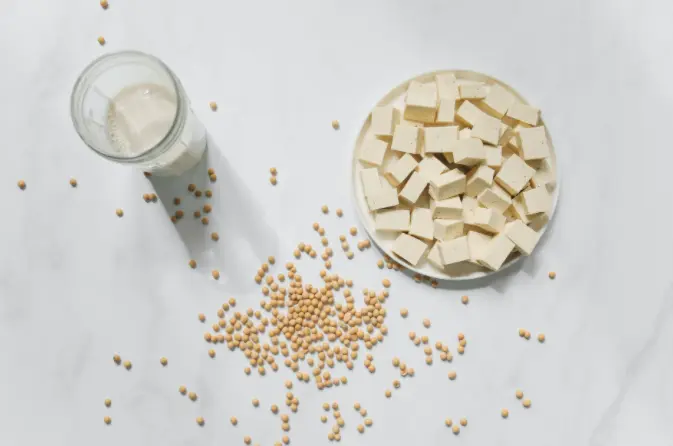A few years back, Thyroid used to be a dreaded condition to be diagnosed with. So much, that people left it undisclosed.
Hypothyroidism is a health situation wherein the production of the thyroid hormone becomes slow. These days, people can find the most convenient way to control this health condition which is taking a pill regularly.
As early as you discover inadequate thyroid functioning, the primary solution used is using a pill. Yet is it the most powerful way to control the malfunctioning gland? Before that, we need to understand the complete working of the thyroid gland.
The thyroid is a butterfly-shaped gland in our neck. It secrets two hormones, triiodothyronine (T3), and thyroxine (T4) which influence the functioning of our body which includes metabolism, growth, development, and more.
The movement of these thyroid hormones is managed by thyroid-stimulating hormone (TSH) which is produced by the pituitary gland. This TSH is systematized by thyrotropin-releasing hormone (TRH) which is produced by the hypothalamus, a portion of the brain.
Causes of Hypothyroidism
One of the common causes of hypothyroidism is autoimmune disorders where your immune system badly hits your thyroid gland (Hashimoto’s disease). Some other causes are postpartum hypothyroidism and iodine deficiency.
Moreover, when our lifestyle is not healthy which include an excess of refined foods, a disturbed sleeping pattern, and the high level of stress, the T3 and T4 hormones are not ready to respond to TSH efficiently.
In order to counter the unresponsiveness of T3 and T4, the pituitary gland continues secreting TSH, in support to stimulate thyroid functioning.
This is the main reason that a person when tested for TSH, displays high levels of it, which symbolizes hypothyroidism. The opposite situation is diagnosed as hyperthyroidism. In this situation, the TSH is low, as the thyroid gland is overactive.
Common symptoms of Hypothyroidism
Fatigue, lethargy, and low energy levels are some well-known signs of hypothyroidism. Take a look at some other recognisable indications:
Rapid Increase in Weight
In the condition of hypothyroidism, our thyroid gland is not ready to get signals to secrete sufficient hormones for our metabolism to meet the required level. Also, the food we consume is not being transformed into the needed strength.
In this condition, the consumed food tends to get changed into fat, since it is not being transformed into energy. This situation drives to weight gain which is a well-known condition in people experiencing hypothyroidism.
Higher Cholesterol Levels
High cholesterol level is another symptom. When your body is not receiving adequate energy, the heart’s pumping function also gets changed which influences the cholesterol levels. Therefore, it is suggested that you must get your thyroid test done if the cholesterol levels are determined upset.
Upset Digestive System
This is also a very common sign of hypothyroidism. People with irregular thyroid hormone levels experience constipation and indigestion.
Changes in Mental Capacity
Besides the above physical symptoms, imbalanced thyroid functioning can also lead to a change in mental capacity. Additionally, disturbed thyroid levels can also be the reason for thinning of hair, and a myriad of skin troubles. Also, the irregularity of these hormones influences the menstrual cycle in women.
Effective ways to manage Hypothyroid
Most of these symptoms can be reduced or eliminated, and artificial thyroid doses can be reduced, simply by improving the diet and lifestyle. Here are a few things which you can adopt:
Proper intake of iodine
It was considered that iodine insufficiency is the main cause of hypothyroidism. But now when we consume iodised salt in our day-to-day life, still the condition is the same. This is because the iodised salt is a highly refined product and refined products affect our body functions.
Therefore, instead of using refined iodised salt, you can witch to using rock salt. And you can complete the intake of iodine from other sources including different seeds, green leafy vegetables, and more.
Avoiding soya products
Soya is a goitrogenic food which disturbs the production of thyroid hormones. Therefore, foods items like tofu, soya beans, soya chunks, soya champs, soya bean oil, and more should not be included in your diet.
The right way of using cruciferous vegetables
Vegetables like cabbage, cauliflower, kale, broccoli are cruciferous vegetables. It is a myth that cruciferous vegetables should not be included in a thyroid diet plan. However, these vegetables must never be used in a raw form if you are suffering from hypothyroidism.
Make sure, these vegetables must be taken in a cooked form because sautéing, cooking or steaming these vegetables improve their properties so that they do not prevent the production of thyroid hormones.
Avoid refined/processed foods and oils
Using refined foods, primarily refined oil is the major factor of this condition. Refined oils like vegetable oils, canola oils, sunflower oil, affect our body in negative ways that we cannot even assume. These oils prevent the transfer of nutrients from one cell in our body to another.
These oils prevent the transfer of nutrients from one cell in our body to another. So, refined oils must not be used in cooking or preparing meals. Besides, other oils that you can choose to use are coconut oil, mustard oil, sesame oil or even desi ghee if you like.
Manage stress
High level of stress is another factor that disrupts the hormonal balance. Conveying our emotions and release them out is always a good way to manage stress level instead of keeping them locked in. High-stress level results in irregular functioning of hormonal glands, including thyroid. Hence a good and proper sleep is very essential for our health.
A Word of Caution
If you are taking thyroid medication, then including calcium-rich foods in your diet becomes very important. You can add calcium-rich foods such as ragi millet, foxnuts, dairy products like curd and paneer in your diet.
All the above steps, if taken properly, help a lot in controlling and improving the functioning of our hormones. Eat healthy, stay healthy, and keep smiling!
Here's what is unique about our programs:
- The amount of time we spend and truly being there for you as a part of family
- Small connected team of well qualified & experienced dietitians & nutritionists
- We educate you about the food, and how small changes can result in long-term health benefits
- Programs where you don’t feel like being on a ‘diet’
- Focus on nutrition as a sustainable lifestyle change, not just calorie counting!
- Non-restrictive diet & lifestyle plans
- Most convenient way to interact, follow plans and track progress – via the ‘Diet Insight’ app
To join online, download Diet Insight app or Know More
Not sure? Call 9870481482 and request to speak to our counselor (9:30am – 8:00pm IST)





Well explained
How to manage hair health in thyroid. I got thyroid in my second pregnancy 12 years back and since then my hair has been brittle and dry with hardly any growth, despite medical treatments.
Please suggest
U r always inspiring mam I’m taking pills from 7yrs please suggest me some thing
I am a big fan of you mam
U always motivate people to adopt good food habits
Thankyou to guide us in right way mam??
My Thyroid level is 3.5, 6 month earlier and now it’s 2.8. I took pills 50mcg for almost 1 year. Was thyroid level is 6.2. Should I stop taking medications now?
very informative ?always follow you!
Beautifully explained . But I wish to know.kore about hyper thyroid . Can we have an article on the
Sure, will do a blog on Hyperthyroid soon. Stay tuned 🙂
I completely agree…. From last 7 years m doing it in dadi way…. No refined oil, fresh chakki atta, rock salt, desi cow milk….
Great going 🙂
Nice INFORMATION….thanks mam
Thanks for sharing Lavleen
Now i will stick to mustard oil and desi ghee .
You’re welcome 🙂
Thank-you ji, such an informative post All my doubts clear but I have one question I am suffering from Hpothyrodism from past 5 yrs and from high bp, nephrotic syndrome as well Dr advice me not to eat high protein diet can u suggest me diet will be really thankful
Diet need to be personalised. Here are your consultation options https://santushtibylavleen.com/how-we-work/
Thank u so much for the information mam…..
Hello Madam , I am taking 100 mcg thyroxin tablet for the past 30 years. My T4/T3 and TSH were under control . I am 70 years old live outside India. for the past 4 months, my T3 and T4 are ok but my TSH almost close to Zero. What could be the cause. and what i should do ? kindly advise me.
Appreciate your help and advice.
Regards
Swamy
You’re welcome Esha!
Hello Madam , I am taking 100 mcg thyroxin tablet for the past 30 years. My T4/T3 and TSH were under control . I am 70 years old live outside India. for the past 4 months, my T3 and T4 are ok but my TSH almost close to Zero. What could be the cause. and what i should do ? kindly advise me.
Appreciate your help and advice.
Regards
Swamy
Swamy, Get your Anti TPO and ATG tests done
very informative Just wanted to clarify if ragi flour, bajra flour and jawar flour roti can be consumed in hypothyroid or wheat flour roti is better.
Millets like Ragi, bajra and jowar are better for you, but that doesn’t mean you can’t have wheat once in a while.